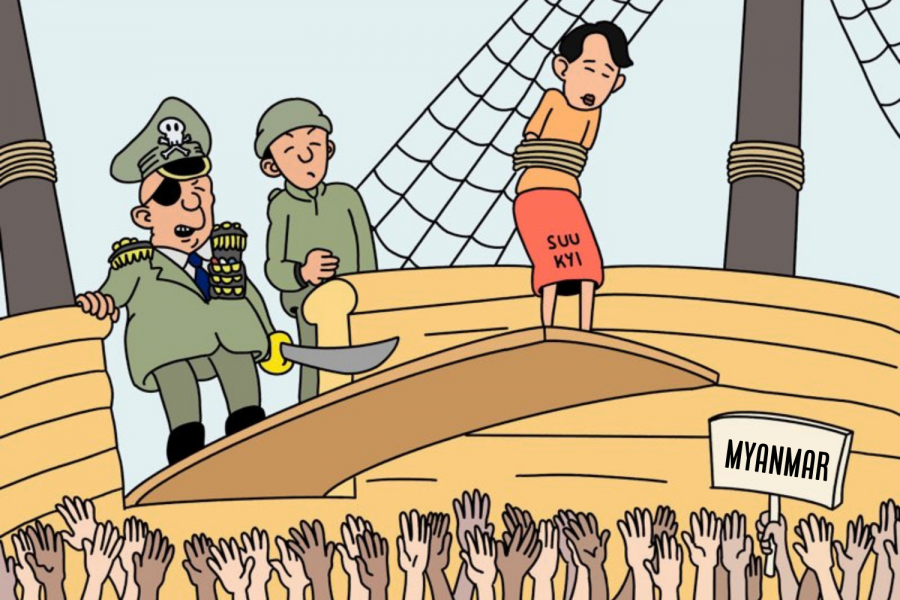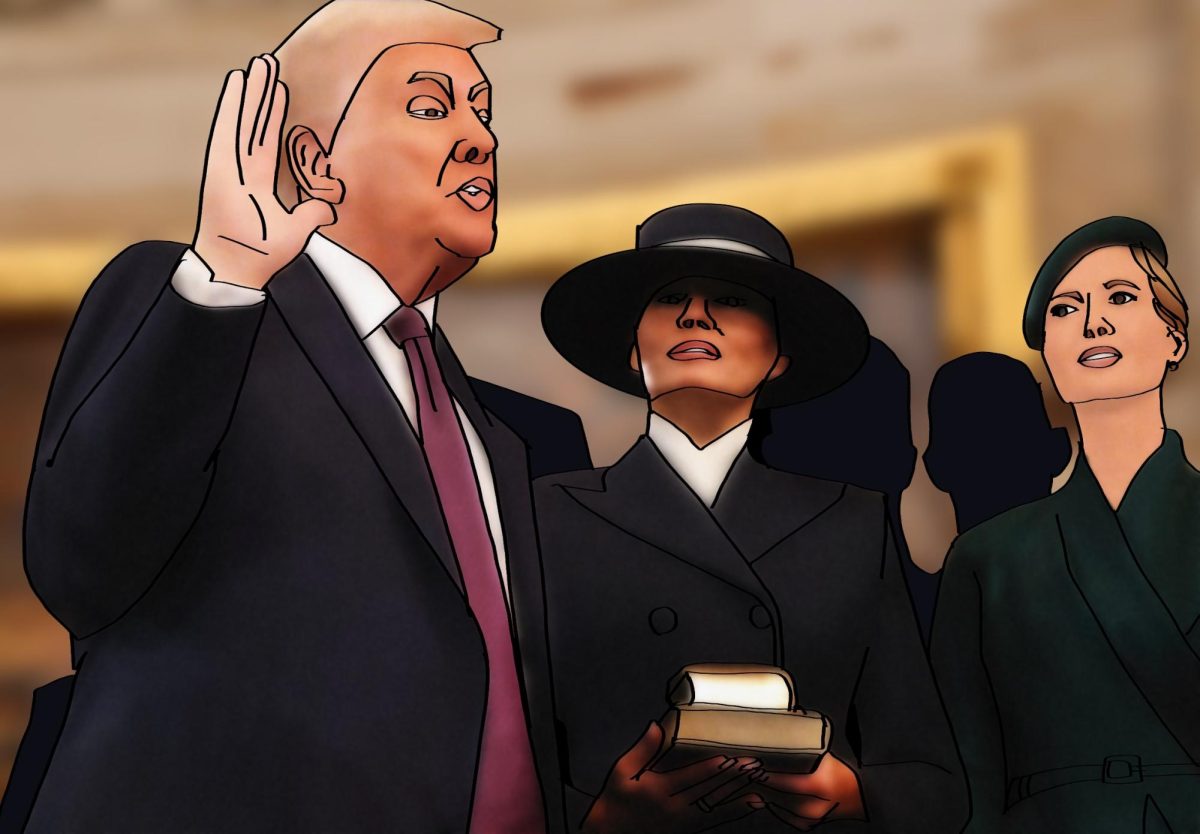The Controversy Over the Myanmar Coup
A coup d’etat occurred in Myanmar, a country in Southeast Asia, this past month.
Feb 26, 2021
In the past several weeks, events have transpired in Myanmar to overthrow their current democratic government. Similar to the attempted insurrection during the United States Capitol riots that ultimately failed, this one succeeded. The coup that occurred in this country began with claims surrounding election fraud and the population’s retaliation to election results. The country’s leader is Aung Saan Suu Kyi, who is currently assumed to be under house arrest, detained by the military government and has been kicked out of her role. This coup is highly controversial because Suu Kyi, prior to holding power, advocated for democracy in this previously corrupt country.
Myanmar, formerly Burma, is a country in Southeast Asia. The predominant religion is Buddhism, but there are many Rohingya Muslims who currently live in this nation as well. Like in other areas of the world, there have been many disparities in this country as a result of discrimination and lack of tolerance of this minority religion’s population. Although Suu Kyi was elected and had rallied the population of Myanmar in her favor, there was still a massive retaliation on behalf of the other party. Suu Kyi built the National League for Democracy Party as part of her advocacy work in the previously colonized country. After working on building a pro-democracy platform in Myanmar, Suu Kyi attained power but had to go to trial on claims that the military was targeting and killing the Rohingya minority, which the United Nations says was done with “genocidal intent.” Ironically, this same military she defended during these accusations and trials jailed her during her protests for democracy in her younger years and organized a coup earlier this month to remove her control.
In her youth, Suu Kyi advocated for a reformed and democratic Burma. Throughout her life, the country’s name changed from Burma to Myanmar, as did its corruptness to democracy. However, the country’s problems were not solved by placing a female advocate for democracy in power. The Rohingya Muslims endured a genocide under Suu Kyi’s political control and she did nothing about it. Although the apparently fraudulent elections were the motive behind the coup, the tension within the country had been building up throughout Suu Kyi’s control. She preached fairness yet let those suffering continue to endure atrocities.
“To most of the world, the recent coup in Myanmar has come as no surprise. The country has been run by military forces and fostered political turmoil for much longer. Being said, the age of information has made this corruption more apparent. Times like these remind us of the value of political freedom, expression and justice which so many do not have,” sophomore Marina Devine said.
Other countries such as the United Kingdom, Australia, the U.S. and also the European Union condemned the coup in Myanmar. What occurred came as a shock to the rest of the world because Myanmar was being governed by a “pro-democractic” leader. Suu Kyi, who previously had been nominated for a Nobel Peace Prize, was facing scrutiny over her inability to settle the division in her nation.
For the foreseeable future, the country will be under military control but it is unsure whether or not this will last. Pro-democracy youth are protesting the military control of the government in hope of liberating Myanmar out of temporary tyrannical control and back to the democracy it was. Although the events that transpired are incredibly discouraging, remaining hopeful for government reform and a shift in power will be the optimistic mindset for Myanmar.












